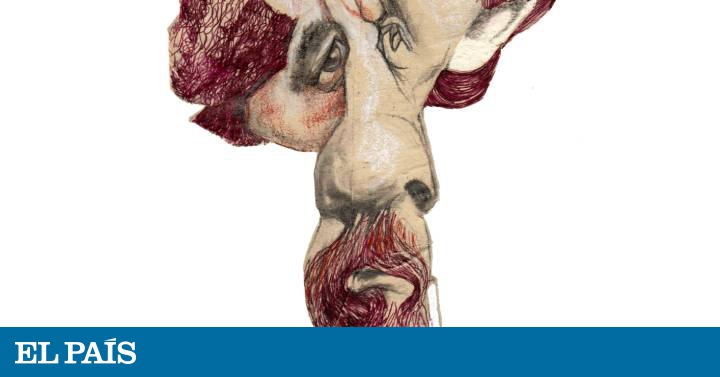Like Charlot or McCartney in Beatles, Charles Dickens was a global star. Since its hatching at just 25 years old, everyone liked it. Like the other two, he was unstoppable and with the gift of opportunity. The three were at the right moment at the click: Dickens, the one in the photograph; Chaplin, the one from the cinema, and McCartney and his people, in front of the television and the compact turntables. They were recognizable, besieged, wanted, demanded, and adored. Self-taught forces, seemingly inexhaustible, that came from where they should not have come - poverty, orphanhood, the other side of the law - to get where - unbeknownst to anyone - were waiting for them. Today it is not possible to imagine the world without them. Enthusiasm, creation, absolute brazenness in the face of contention, whether in the face of denunciation, good taste, politeness, genius, the not impossible connection between popular and excellent.
Without Dickens, the immigrant who does not want to leave where they are trying to kick out (the poor who wants to eat in the same restaurant as the others) is not possible. It's Charlot tramp and the blind florist, the ends of empty pockets and high hopes. But it is also Dickens who denounces in Modern Times or The Great Dictator . Dickens is My Love and Obladi Oblada , but also Golden Slumbers (a very Dickensian title) or Here, There and Everywhere . But Dickens is especially that song on the piano, those fingers that give easy but irresistible notes, that melodic hook that a virtuoso and self-taught never reaches (I just intuited that it would sound better). It's Martha, my Dear, that movie ending that kills us with guilty pleasure. Hugh Grant going up to play Softly with a battered and abused boy.
It is unthinkable Chaplin without Dickens as there is no Frank Capra (Wonderful Life is nothing but wickedly twisting the arm of A Christmas Carol) or David Lean or George Cukor or wonders like Bicycle Thief. But also the parallel montage or the close-ups in Griffith are Dickens as Eisenstein pointed out or the bizarre characters of David Lynch. The cinema —and the TV series— suited Dickens, his novels derived from medieval romances, narrations of events and unusual characters. And in him, the character that does not change, the Gary Cooper that the circumstances of the romance become darker but never destroy, on a journey to redemption, almost always within a system in which he believes. It is logical that he believes that the good win and that justice exists if it is human (and Kafka, a Dickensian of pro, would create labyrinths with no way out) because he is the very example of that good end that fills an entire society with hope (the dignity of the poor as well as goodness of the rich).
Chaplin, McCartney, or himself — working as a child to support his family, since his father was in jail for debt — became popular and loved millionaires. At such a level that they even changed the rules of the game itself (the defense of copyright owes much to the novelist). Any cynicism would have been imposed. Hence his direct, grotesque sentimentality (only from there can an outburst of joy be described as Chesterton pointed out), cheesy at times but also emotional, sincere like bad poetry (Oscar Wilde), but assured the shot before social criticism, denunciation, the will to point out causes and effects of urban capitalism in a London scene and soul of all Dickens. Charlot was London in the New World, the outlandishness of worthy but miserable attire — another dickensian for his eccentric, offbeat characters.
Charles Dickens - like his other two companions in his time in these lines - had the wisdom to know that fiction is a powerful force to change things. Oliver Twist was directly responsible for cleaning up the London suburbs and A Christmas Carol points out what happens when those who have the money do not help their community. The mistreatment in orphanages, the delinquent children, the labyrinthine corridors of a slow justice, deaf and blind at the same time, the inherited poverty. Prostitutes, drunkards, bankrupt, old and insane. Dickens gives them dignity per se and points them out as broken toys of a system when it works without God or ethical balance, like a cruel and vengeful novel, without morality, without poetic justice. A Christmas Carol is nothing but the wonderful failure of a pamphlet on the situation of extreme child poverty and its inhumane working conditions, which he decided to turn into fiction. His genius added gothic romance, ghost stories, melancholy - what could be and was not, the decisions we did not make - fantastic and ... Christmas. Dickens perhaps did not invent Christmas, but the way to celebrate it: family, festive, inclusive, wasteful and grotesque. Cold, contained Victorian Christmases were razed to the ground by a boy with bitumen-stained hands who wanted to live inside houses, families, and books.


/cloudfront-eu-central-1.images.arcpublishing.com/prisa/DOIXPQEEPJCGXP5BRWBTXUOTMY.jpg)


/cloudfront-eu-central-1.images.arcpublishing.com/prisa/7Q33F7LNFBH6FBLUVRUPO7RGM4.jpg)

